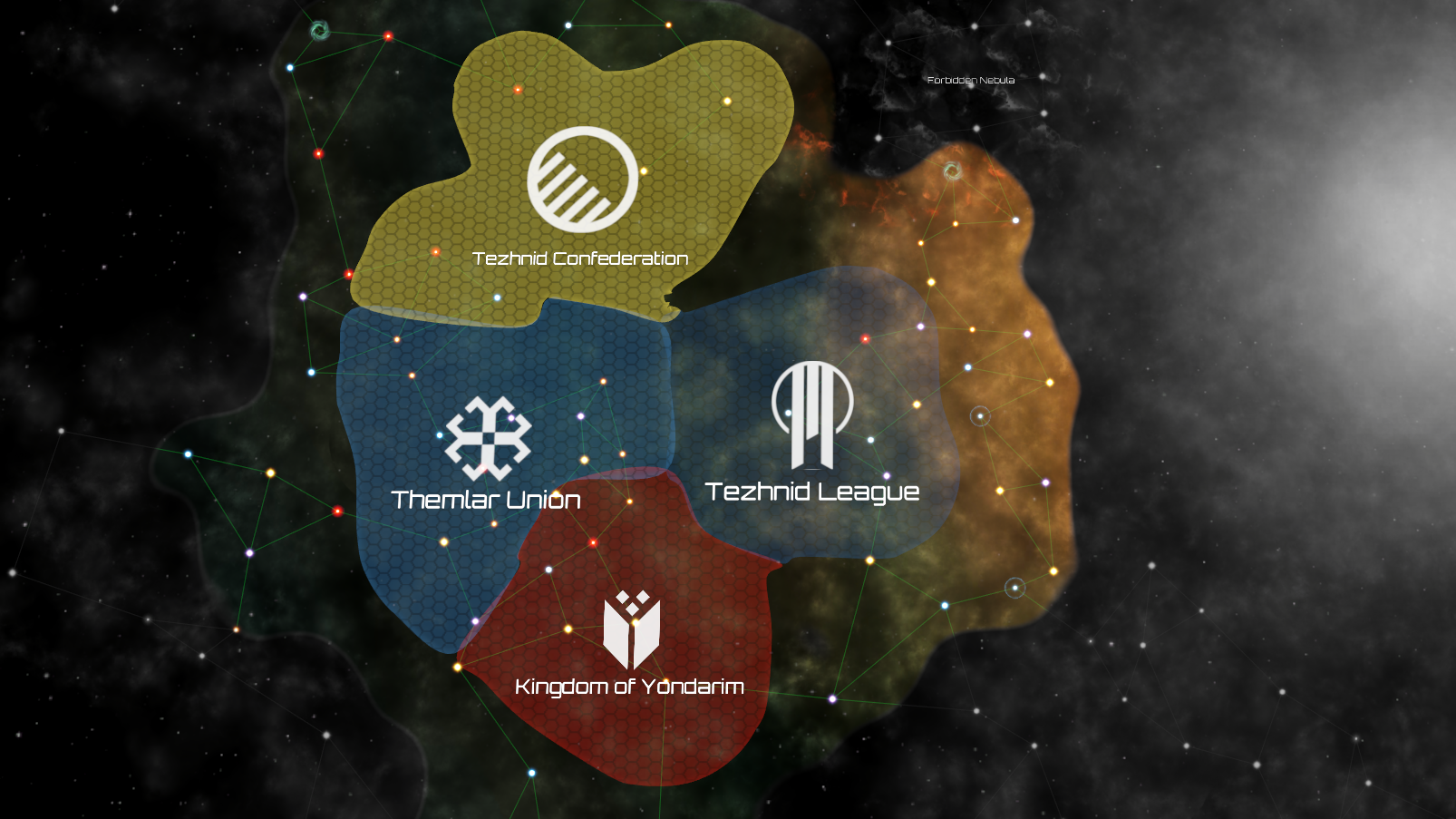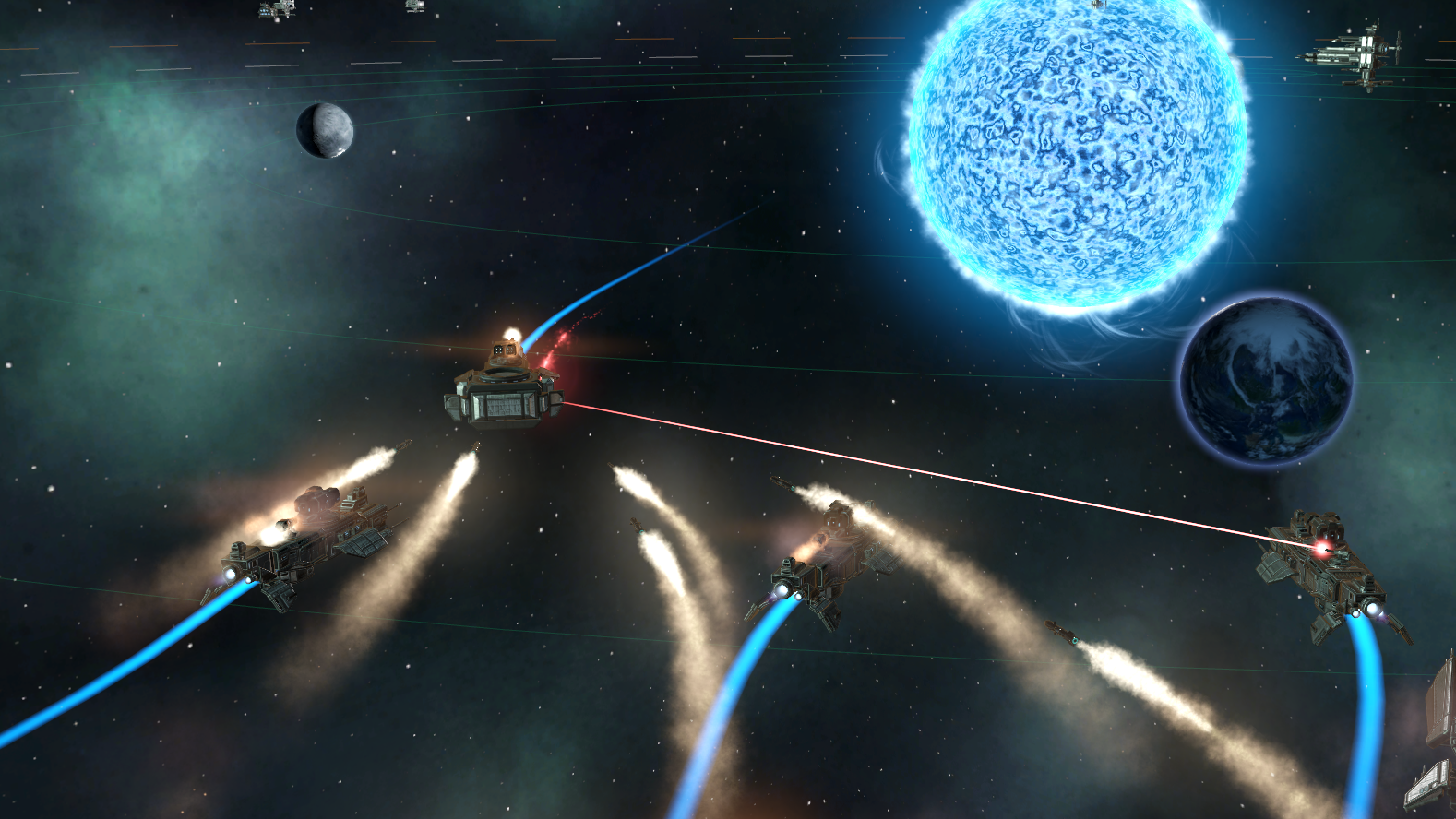Stellaris: how Paradox plan to make an infinite grand strategy

Technology is part of Paradox's plan to enhance the variety found in each playthrough. Scientists can be assigned between three research departments: physics, society and engineering. There won't be a tech tree—Fåhraeus calls it too predictable. Instead, it works like a deck of cards. The selection of technologies you can choose will be defined by chance, and by your research scientist and empire's traits. But while there's a random element, you'll be able to reassign scientists to maximise the likelihood of being offered specific tech. If a scientist exploring the galaxy develops an interest in laser technology, you'll be able to allocate him to the relevant research department in the hope of earning new laser-based discoveries.
As you encounter more alien factions, Stellaris will become more like Europa Universalis in its diplomacy and warfare. You can wage war with another empire, no problem, but occupying one of their planets doesn't mean you'll own it. Instead, you need to defeat your enemy, and sign a peace treaty that decides how much of their territory you'll take.
When you do fight, the battles will play out in real-time. Paradox aren't using a turn-based tactical battle system, because—as with other Clausewitz games—Stellaris is also designed for multiplayer, where it can fit in as many players as can realistically divide up a galaxy. As in most Paradox Development Studios games, control over the actual battlefield will be relatively slim. Your role is to outfit your units with the best weapons and shield technology, and decide the high-level strategy that will give your ships the best chance to punch through an opposing faction's military.
It's not all about war, either. Players will be able to sign non-aggression pacts, alliances and even set up a Federation—inviting other races into a grand coalition of planets. "The cool thing about that is that at regular intervals there is an election for the new Federation president," says Fåhraeus. "You basically rotate between the member states over who has leadership." The title comes with some perks, too. The Federation has access to an elite force of military ships, outfitted from all the best technology of its member states.

Not all empires will have the same goals. Fåhraeus shows me a "fallen empire"—an ancient race that has stopped expanding and lost interest in new technologies. They're old, powerful and regard the younger empires as idiot children. They also have unique technologies that can be reverse engineered, but will prove a fearsome enemy should you attempt to attack them for it. Fåhraeus also shows me a pre-space age planet. There are a number of options for dealing with planet-bound peoples. You can conquer them, make them part of your empire, or "aggressively" observe them through abductions and probing.
For the late-game, Paradox hopes to avoid letting the player reach a point where they know that they've won. Their solution is a galactic catastrophe. You can have between zero and two of these in each campaign, and they'll be triggered either at random or by the research of you or your opponents. Certain technologies are marked as dangerous, and researching them could potentially result in a crisis. For instance, research the more advanced wormhole technologies and you could rip open a hole to demonic dimension. Research AI, and you may face a familiar problem. "They're happy all the time and don't cause any problems," says Fåhraeus of the AI robots, "but then suddenly they do."
"They're happy all the time and don't cause any problems, but then suddenly they do."
The emerging crisis will shake up the final stages of a campaign, forcing players to form new alliances and work together to save the galaxy from destruction. Of course, Stellaris isn't the tale of galactic empires coming together in the face of adversity. No doubt these crises will provide plenty of opportunity for intrigue, plotting and just generally screwing over your enemies. Not that it will all be end-of-galaxy threats. Players will also need to worry about their leaders and population units.
Keep up to date with the most important stories and the best deals, as picked by the PC Gamer team.
There's a lot to take in over the course of Paradox's half-hour presentation. Stellaris seems absurdly ambitious, but, when its systems are separated out, it's building mostly on what the studio has done before. There are elements of Crusader Kings 2, of Europa Universalis 4, and of Victoria 2—all with a sci-fi twist that gives Paradox more freedom to focus on themes of exploration and discovery. Put simply, I think they can pull it off. Stellaris could be a grand strategy that deserves the hundreds (even thousands) of hours its fans will undoubtedly pour into it.

Phil has been writing for PC Gamer for nearly a decade, starting out as a freelance writer covering everything from free games to MMOs. He eventually joined full-time as a news writer, before moving to the magazine to review immersive sims, RPGs and Hitman games. Now he leads PC Gamer's UK team, but still sometimes finds the time to write about his ongoing obsessions with Destiny 2, GTA Online and Apex Legends. When he's not levelling up battle passes, he's checking out the latest tactics game or dipping back into Guild Wars 2. He's largely responsible for the whole Tub Geralt thing, but still isn't sorry.

